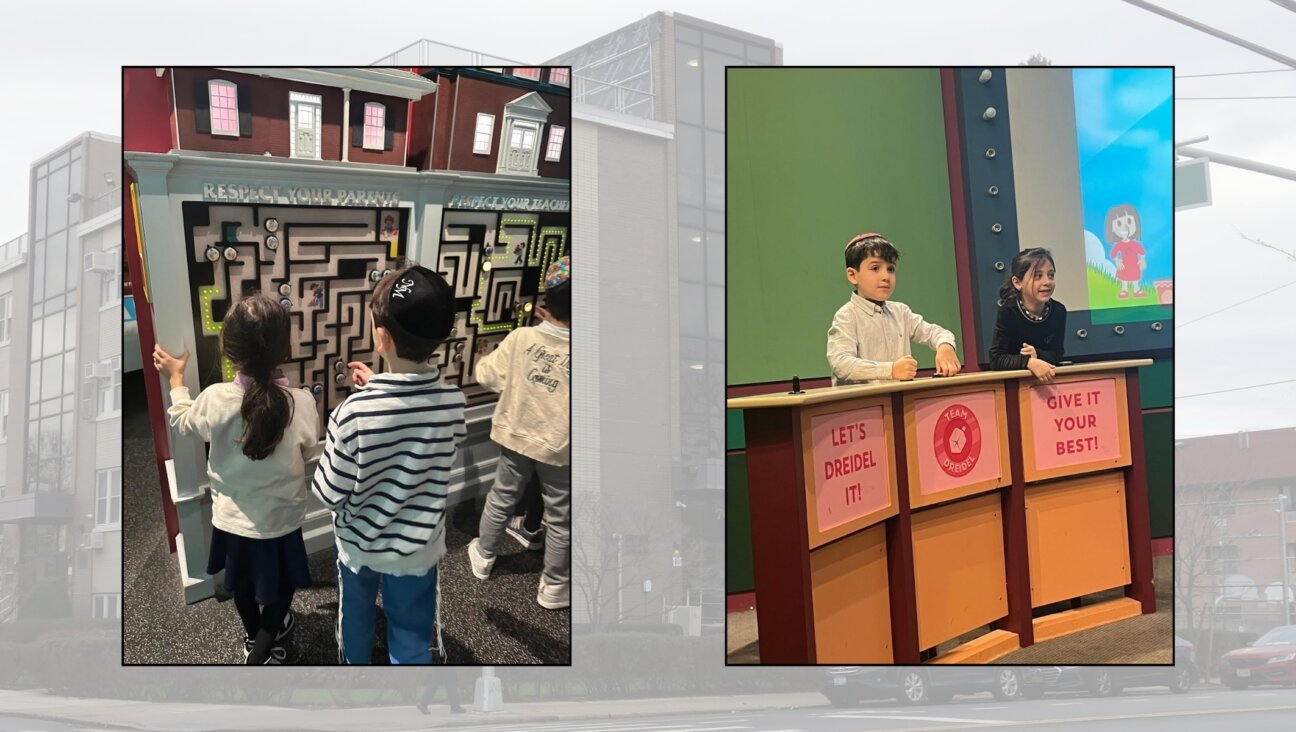Settlement Freeze
A rash of reports coming out of Israel indicates that a spurt of new construction is under way in Israeli settlements in the West Bank. The development should be alarming to anyone who cares about Israel’s welfare. It’s a violation of Israel’s public commitments, most of all to the Bush administration. It’s damaging to Israel’s international standing and harmful to its security, both short and long term. Most troubling, it’s a sign of the weakness of the Olmert government, and it raises questions about Israel’s ability to negotiate for the peace that its prime minister so clearly wants.
Settler spokesmen and their allies on the right are claiming that the reports were trumped up by the left-wing Peace Now in order to embarrass the settlers and the Israeli government. But that’s simply not true. The reports come from the hawkish Shas party as well as Peace Now, from the conservative Jerusalem Post as well as the liberal Ha’aretz. Some reports, in fact, have come from Prime Minister Ehud Olmert himself, apparently in a bid to soothe his right-wing opponents and keep Shas from bolting his coalition.
Olmert and his aides insist the new construction — upward of 2,000 new apartments to be bid out to contractors — is perfectly within Israel’s rights and doesn’t present any legal or diplomatic difficulties. About half the planned units will go up inside the municipal boundaries of Jerusalem, which means, as one Israeli diplomat told the Forward, “there’s no problem.” Most others fall within the municipal boundaries of major settlements that Israel intends to keep in any future agreement.
But the Israeli government’s stance is at best disingenuous. Israel claims that new construction in eastern Jerusalem, captured in 1967, cannot be called settlement activity because Israel annexed the eastern half and it is no longer occupied territory. Unfortunately, no other country recognizes the annexation. Every other government in the world, including the United States, believes that east Jerusalem is occupied territory, and that civilian Israeli construction there is forbidden under the Geneva Conventions.
More important, Israel committed itself in the framework of President Bush’s 2003 Road Map to peace to “freeze all settlement activity (including natural growth of settlements).” There’s no exception for new building inside the settlements’ municipal boundaries, which Israel insists it’s entitled to do. New homes for the settlers’ growing families are exactly what is meant by “natural growth.”
Whatever the status of Jerusalem, outlying West Bank communities such as Ariel and Betar Illit are settlements by anybody’s lights, including Israel’s. The new construction announced there last month is a direct slap at the Road Map and its author, as Secretary of State Condoleezza Rice made clear in her angry remarks in Jordan just after the new construction was announced.
It’s important to acknowledge that the question of new Israeli construction in the West Bank is not a matter of intrinsic right and wrong, of moral vs. immoral behavior. Violating the Road Map agreement by building new apartment blocks can hardly be compared with violating it by bombarding Israeli towns and deliberately killing and maiming civilians. Israelis are not wrong to question the international outcry that greets every new West Bank housing start.
At this moment in history, however, new construction in the settlements, whatever its moral valence, is foolish and self-destructive. Israel’s political and defense leaders see their country’s survival as dependent on separating from the Palestinians by withdrawing from the West Bank. If that doesn’t happen soon, Israel is, as Olmert said recently, “finished.” With unilateral withdrawal discredited, getting out requires a Palestinian partner who can take over when Israel leaves. At the moment the sole candidate for the job is Palestinian Authority President Mahmoud Abbas, leader of the secular-leaning Fatah party.
But Abbas is too weak to impose order and hold back the rival Hamas movement, and he’s growing weaker. His inability to deliver concrete Palestinian gains through negotiation badly discredits him and his strategy of negotiation among his constituents. Each new housing construction in the settlements weakens him further.
Jerusalem maintains that the Palestinians must honor their Road Map commitment to stop incitement and break up terrorist gangs before Israel needs to begin acting on its commitments. The way things look now, though, that may be backward. Israel needs to help Abbas win back control by first honoring its own commitments.
A message from our Publisher & CEO Rachel Fishman Feddersen

I hope you appreciated this article. Before you go, I’d like to ask you to please support the Forward’s award-winning, nonprofit journalism so that we can be prepared for whatever news 2025 brings.
At a time when other newsrooms are closing or cutting back, the Forward has removed its paywall and invested additional resources to report on the ground from Israel and around the U.S. on the impact of the war, rising antisemitism and polarized discourse.
Readers like you make it all possible. Support our work by becoming a Forward Member and connect with our journalism and your community.
— Rachel Fishman Feddersen, Publisher and CEO






















